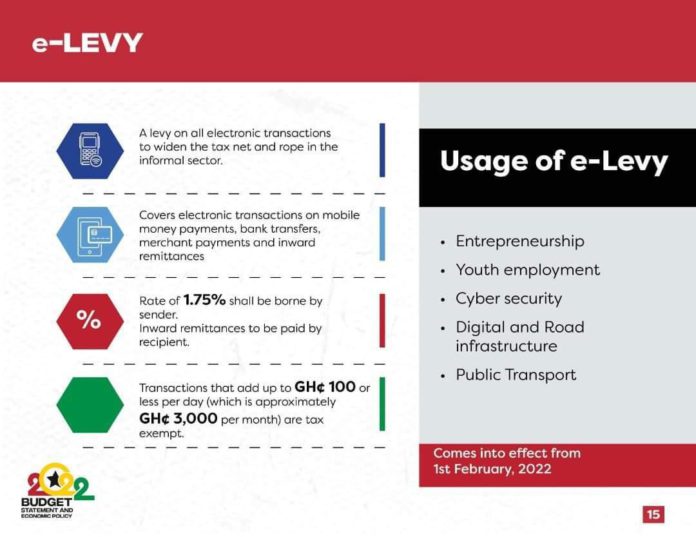The E-Commerce Association of Ghana wants government to consider the negative impact of the 1.5 percent Electronic Transaction Levy on their activities.
According to the association, the levy has increased the cost of doing business among its members, pushing operators in the E-commerce sector to consider relocating to other West African countries with favourable tax regime.
Speaking to Joy Business on the sidelines of Jumia at 10 anniversary, the Executive Director of the E-Commerce Association of Ghana, Paul Asinor, appealed to government to engage members in the sector before reviewing the impact of e-levy in the mid-year budget presentation.
READ ALSO:
- Woman performing oral sex on driver causes vehicle crash [Video]
- Nigel Gaisie’s latest prophecy on Ghana and Mahama [Listen]
- Why Jesus is trending on social media
“We do not want an instance where government will keep increasing the E-levy and see it as an easy way to increase revenue. We want to stop it now in the budget, because it will affect our business. If the cost of doing business continues to increase, businesses will gradually reduce their investment and look outside where operations are less costly,” he said.
Mr. Asinor expressed worry that the Ministry of Finance did not engage key stakeholders in the e-commerce sector before introducing a sensitive tax policy such as the e-levy.
“We actually think that government must engage us to discuss a number of issues affecting the sector. This e-commerce sector is a vibrant area that can fetch government a lot of income if activities in the areas are streamlined”.
Making some recommendations, he stressed the need for a national policy that will build the e-commerce sector to rake in the needed revenue for government.
According to him, there are many misconceptions suggesting that businesses which operate online do not pay taxes.
“That perception is a myth because online businesses are easily monitored and made to pay taxes. I have just told you about e-levy and how it affects our business”, he stressed.
Touching on the poor conditions of some online workers, Mr Asinor stated that plans are underway to learn from best practices in other jurisdictions.
“We are aware of the low incomes that online workers receive, and so we are engaging the relevant stakeholders. We will finalise our recommendations soon for government to consider in designing a sustainable policy,” he said.

